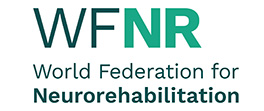
Dr Christian Endisch, a physician with a neurology residency at the department of Neurology and Experimental Neurology Charité Universitätsmedizin in Berlin, Germany, is the winner of the 2024 World Federation of Neurorehabilitation (WFNR) Franz Gerstenbrand Award.
Announced this month at the 13th World Congress for Neurorehabilitation in Vancouver, Canada, Dr Endisch said: “I’m delighted to receive the WFNR Award for this research that will aid the prediction of recovery of comatose patients after resuscitation from cardiac arrest. The prize will fund travel to conferences to further my knowledge in this area.”
Dr Endisch’s team conducted a retrospective, international, multicentre study of 706 comatose cardiac arrest (CA) patients and looked at their cortical somatosensory evoked potential (SSEP) amplitudes using a standardised evaluation pathway.
After resuscitation from a CA, one of the first steps of neurorehabilitation is to identify as soon as possible whether comatose patients are likely to benefit from further life-sustaining therapy and long-term rehabilitation. SSEPs are one of several prognostic parameters used in the international neuroprognostication guidelines for these patients. Previously, the prognostic value was limited to categorising cortical SSEPs as either bilaterally absent (indicating poor outcome) or present (outcome uncertain), resulting in neuroprognostication remaining unclear in many comatose CA patients.
The results of Dr Endisch’s study, published last year [1], showed that bilaterally absent and cortical SSEP amplitudes below 0.5 µV reliably predicted a poor outcome and high cortical SSEP amplitudes were likely to indicate the absence of severe brain injury.
As a result of Dr Endisch’s findings comatose CA patients will benefit from either the continuation of treatment and neurorehabilitation in the absence of severe brain injury, or the withdrawal of futile therapy for those with severe brain injury and no long-term prospect of regaining consciousness.
This is an extremely important study emphasising the importance of prognostic SSEP recordings throughout the neurorehabiliation process from admission or at a later stage. The WFNR congratulates Dr Endisch and his team; this research will aid the difficult decisions around treatment continuation for these patients.
Reference
1. Aalberts N, Westhall E, Johnsen B, Hahn K, Kenda M, Cronberg T, Friberg H, Preuß S, Ploner CJ, Storm C, Nee J, Leithner C, Endisch C. Cortical somatosensory evoked potential amplitudes and clinical outcome after cardiac arrest: a retrospective multicenter study. J Neurol. 2023. Dec;270(12):5999-6009. https://www.doi.org/10.1007/s00415-023-11951-4. Epub 2023 Aug 28. PMID: 37639017; PMCID: PMC10632270.